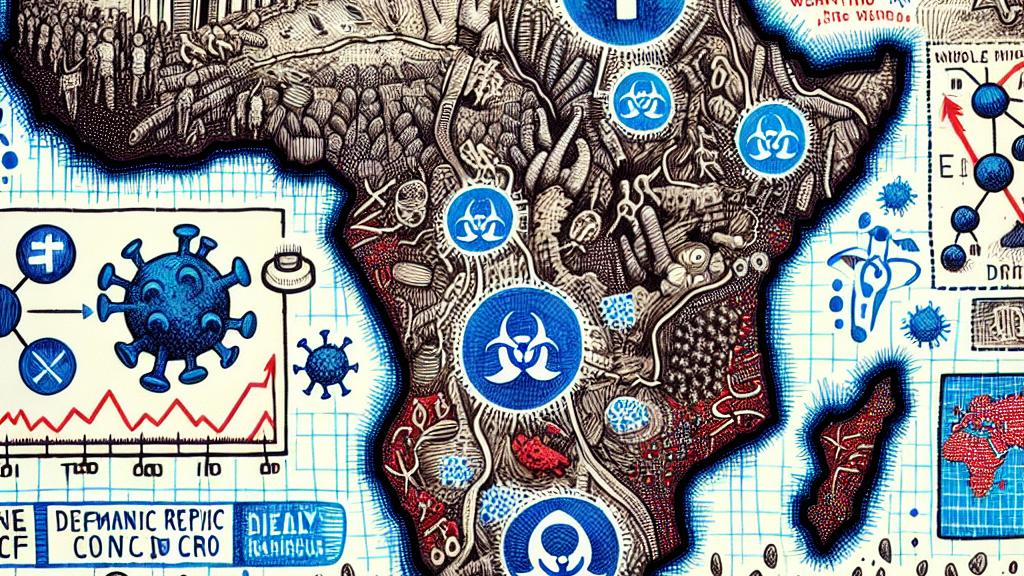Mpox Mayhem: The Terrifying Return of a Deadly Strain!
Overview
- A newly identified and more lethal mpox strain is spreading rapidly in the Democratic Republic of Congo.
- The WHO is contemplating an international emergency declaration due to alarming case and mortality rates.
- Cross-border transmission raises urgent public health concerns across East Africa.

Understanding the Resurgence of Mpox in DR Congo
Currently, the Democratic Republic of Congo (DRC) is facing a significant resurgence of mpox, formerly known as monkeypox. This new variant, dubbed the Clade Ib strain, has emerged with alarming characteristics, proving to be both more deadly and more transmissible than previous strains. Reports indicate that since September 2023, there have been over 14,479 confirmed or suspected cases in the DRC, leading to approximately 455 deaths—translating to a concerning mortality rate of about 3%. Particularly distressing is the data suggesting that among infected children, mortality rates can reach as high as 10% due to severe complications. Symptoms associated with this strain are notably extensive, including pronounced skin rashes covering the entire body, significantly complicating the clinical picture and challenging healthcare responses in already strained health systems.
Global Response and the Risk of Spread
In response to this escalating crisis, the World Health Organization (WHO) is closely monitoring the outbreak and is considering whether to declare an international health emergency similar to the one declared during the significant global outbreak of mpox in 2022. Health officials are particularly worried about cases of the Clade Ib strain transitioning beyond DRC's borders into neighboring countries such as Uganda and Burundi, where initial cases have begun to emerge. The strain's capacity for rapid person-to-person transmission underscores the critical necessity for preventive measures. With existing health infrastructures in the region already burdened, the risks of complacency are dire, as insufficient vaccine access and response capabilities could lead to wider contagion and an accelerated death toll.
Mobilizing Public Health Initiatives and Community Awareness
Given the severity of the situation, health authorities across East Africa are mobilizing efforts to educate the public about mpox and practical ways to prevent its spread. The East African Community (EAC) is spearheading initiatives aimed at increasing awareness and implementing health education campaigns to inform citizens about mpox's transmission, symptoms, and preventive measures. Experts emphasize the importance of swift vaccination initiatives, public health surveillance, and improved access to medical care to mitigate this public health crisis. Collaboration at both regional and international levels is essential to deploy resources effectively and ensure that healthcare systems can mount an adequate response. As the world becomes more interconnected, the potential for mpox to affect populations far beyond the DRC highlights the need for urgent coordinated actions to protect public health across borders.

Loading...